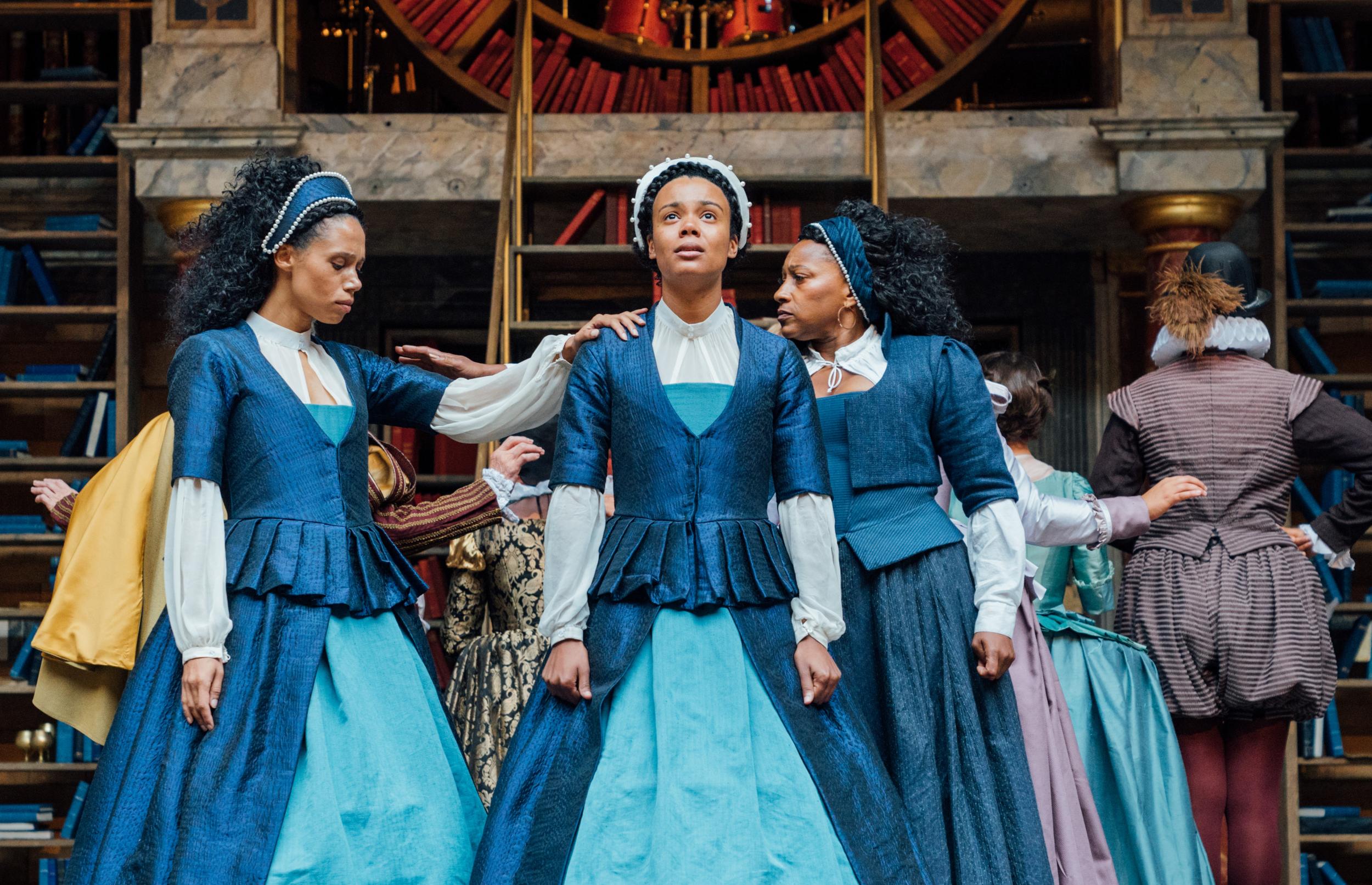Emilia, Shakespeare's Globe, London, review: feminist call to arms is a landmark for the Globe
A tentative history of 17th-century poet Emilia Bassano, Morgan Lloyd Malcolm’s rousing new play is a timely meditation on the silencing of women

Your support helps us to tell the story
From reproductive rights to climate change to Big Tech, The Independent is on the ground when the story is developing. Whether it's investigating the financials of Elon Musk's pro-Trump PAC or producing our latest documentary, 'The A Word', which shines a light on the American women fighting for reproductive rights, we know how important it is to parse out the facts from the messaging.
At such a critical moment in US history, we need reporters on the ground. Your donation allows us to keep sending journalists to speak to both sides of the story.
The Independent is trusted by Americans across the entire political spectrum. And unlike many other quality news outlets, we choose not to lock Americans out of our reporting and analysis with paywalls. We believe quality journalism should be available to everyone, paid for by those who can afford it.
Your support makes all the difference.If Shakespeare’s Globe had a roof, it would have been blasted off by the thunderous ovations and cheers now greeting Morgan Lloyd Malcolm’s extraordinarily rousing new play. All praise to artistic director, Michelle Terry, for perceiving the imaginative possibilities in the subject and making such a bold commission.
Interest in Emilia Bassano (1569 – 1645) is confined these days to speculation over whether she might have been Shakespeare’s muse – the Dark Lady of the Sonnets. It’s an an ironic fate for the author of one of the first published collections of poetry written by a woman in England. Salve Deus Rex Judaeorum (1611) contains a multi-layered defence of Eve and an indictment of Adam and it’s prefaced by a letter “To the Vertuous Reader” that spits fire at men who “forgetting they were borne of women... doe like Vipers deface the wombs wherein they were bred”. Very unusually for a woman in the period, she sought the patronage to finance a career as a professional writer.
In Emilia, this subversive, feminist spirit gets to tell her story at last. Having to fill in the considerable gaps in the evidence, Malcolm takes an attractively robust approach, mounting conjecture upon conjecture, with the odd squirt of wishful thinking. Emilia is the Dark Lady, so there, and she supplied an ungrateful, out-for-number-one Shakespeare – amusingly played by Charity Wakefield in Nicole Charles’s exhilarating all-female production – with some of his most famous lines and dramatic encounters. The Dark Lady is also emphatically a woman of colour.
Emilia is portrayed by a trio of actors, all of them brilliant – Leah Harvey as the youngest; Vinette Robinson in the middle and Clare Perkins as the oldest, who presents the story. Malcolm makes no pretence that this is a tentative work of scholarship (though it has been closely researched). It revels in its pointedly anachronistic phrasing (“meal ticket”, “otherness”, “levelling the playing field”) and only occasionally, in the freewheeling fun of this, do you feel that the past have been given too modern a makeover. There’s something a bit forced about the dialogue when Nadia Albina as Lady Katherine Howard treats Emilia to a Brexit harangue about migrant families, like hers, “inundating” the country. What you are mainly impressed with, though, is the way Emilia is able to speak with timeless pertinence against the silencing of women and the subjugation of their creative talents to the male ego. The play is a passionately considered manifesto rather than a cautious history lesson.
It fits this theatre beautifully Joanna Scotcher’s design, jutting into the groundlings’ yard with its pincer-shaped ramps, creating a circular pit-within-the-pit. There’s an episode that imagines Emilia descending into the crowd there, watching two actors perform the Willow scene in the newly written Othello. She perceives what she takes to be Shakespeare’s distortion of her in his character of the same name. This figure talks to Desdemona of husbands: “Then let them use us well; else let them know, the ills we do, their ills instruct us so”. The Bard pinched these proto-feminist words from something she said. Furious with frustration and a sense of powerlessness, she storms the production and has to be dragged offstage still shouting the final line. It makes a thrilling close the first half.
But it’s one knockout moment after another in this production. Take the sudden sobering alarm of our realisation that one of Emilia’s literacy class of washerwomen is being burned as a witch (under a bonfire of books) for reading her poems. In many honourable ways, this feels like a therapeutic blast in the #metoo era and it ends with an appropriately spine-tingling call to arms. “If they try to burn you, may your fire be stronger than theirs, so you can burn the whole f***ing house down”. In the weight of her anger, the extraordinary Clare Perkins convinces you that she holds “a muscle memory of every woman who came before me”.
Not just the best piece in Michelle Terry’s inaugural season, this is a landmark moment in the history of Shakespeare Globe.
To 1 September. shakespeareglobe.com
Join our commenting forum
Join thought-provoking conversations, follow other Independent readers and see their replies
Comments